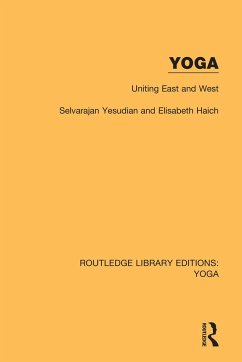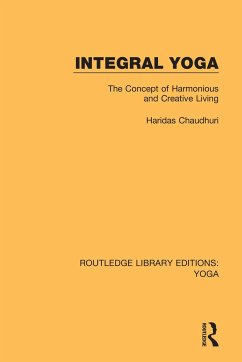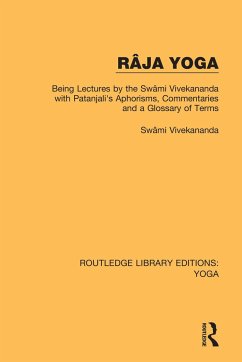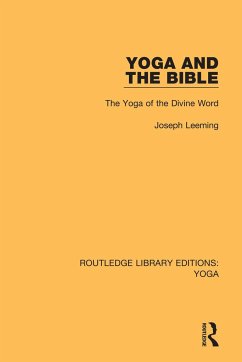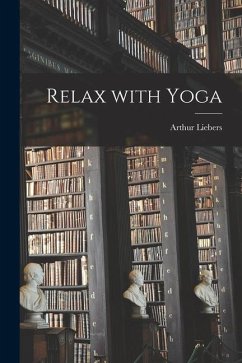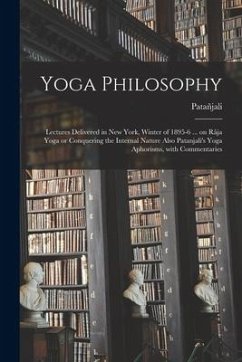
Sutras, Stories and Yoga Philosophy
Narrative and Transfiguration
Versandkostenfrei!
Versandfertig in 1-2 Wochen
55,99 €
inkl. MwSt.
Weitere Ausgaben:

PAYBACK Punkte
28 °P sammeln!
This book presents a close reading of four Indian narratives from different time periods (epic, Upani¿adic, pre-modern and contemporary): Ekalavya's story from the Mah¿bh¿rata (MBh 1.123.1-39), the story of Praj¿pati, Indra and Virochana from the Ch¿ndogya Upanisad (CU 8.7.1-8.12.5), the story of ¿ankara in the King's body from the ¿ankaradigvijaya, and A.R. Murugadoss's Hindi film Ghajini (2008), respectively. These stories are thematically juxtaposed with P¿tañjala-yoga, namely Patañjali's Yogas¿tra and its vast commentarial body. The s¿tras reveal hidden philosophical layers. Th...
This book presents a close reading of four Indian narratives from different time periods (epic, Upani¿adic, pre-modern and contemporary): Ekalavya's story from the Mah¿bh¿rata (MBh 1.123.1-39), the story of Praj¿pati, Indra and Virochana from the Ch¿ndogya Upanisad (CU 8.7.1-8.12.5), the story of ¿ankara in the King's body from the ¿ankaradigvijaya, and A.R. Murugadoss's Hindi film Ghajini (2008), respectively. These stories are thematically juxtaposed with P¿tañjala-yoga, namely Patañjali's Yogas¿tra and its vast commentarial body. The s¿tras reveal hidden philosophical layers. The stories, on the other hand, contribute to the clarification of "philosophical junctions" in the Yogas¿tra. Through s¿tras and stories, the author explores the question of self-identity, with emphasis on the role of memory and the place of body in identity-formation. Each of the stories diagnoses the connection between self-identity and (at least a sense of) freedom. Employing cutting-edge methodology, crossing the boundaries of literary theory, story-telling, and philosophical reflection, this book presents fresh interpretations of Indian thought. It is useful to specialists in Asian philosophy and culture.





